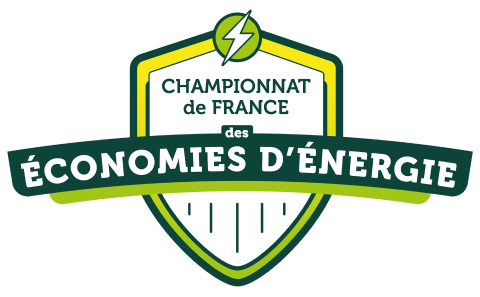Months after the start of the COVID-19 health emergency, we are beginning to witness the impact on businesses, employment, and on the environment. While the confinement period and the crisis have enabled us to step back from today’s society and our daily lives, to change our habits and accelerate our energy and environmental transitions, consequences of the crisis are already being felt. For these reasons, the EU decided to act quickly, proposing a recovery plan to address the economic crisis as early as July 21st, 2020. This plan will allocate nearly 750 billion Euros and will increase the Union’s budget thanks to new financing raised for 2021-2024. This « Next generation EU » plan will be deployed in order to achieve the following three main objectives:
- Increasing support to Member States with investments and reforms: €560 billion will be offered in the form of financial support for investments and reforms, including in relation to the green-environmental and digital transitions and national economies’ resilience, linking these to EU priorities.
- Kick-starting the EU economy by incentivising private investments
- Addressing the lessons learned from the crisis: With a new Health Programme for instance, EU4Health, that will help strengthen health security and prepare for future health crises.
The EU aims to invest in a green Europe. Returning to our pre-crisis economy is not an option but developing a green, fair, and sustainable economy is. In order to do so, the EU has decided to base its recovery plan on the European Green Deal which aims to make Europe the first climate neutral continent, with zero greenhouse gas emissions by 2050.
These measures and willingness to move towards a sustainable world will allow us to accelerate the environmental and energy transition throughout Europe. Many member countries have already embarked on significant environmental reforms and energy transitions in order to achieve the European Green Deal objectives.
If we take France as an example: 1/3 of the funds in its recovery plan will be devoted to the environmental transition, i.e. around 30 billion Euros. The energy renovation of buildings has not been overlooked, with 7 billion Euros earmarked for this activity. The aim is to encourage public buildings, VSE/SMEs, and households to undergo renovation projects that will lead to significant energy savings.
These plans and reforms speak volumes about the importance of the ecological transition and the environment in our society today. Now more than ever, it is time to get involved and venture into projects that will allow us to move towards a more sustainable and healthy world.
European Commission President, Ursula von der Leyen, elaborated: “The recovery plan turns the immense challenge we face into an opportunity, not only by supporting the recovery but also by investing in our future: the European Green Deal and digitalization will boost jobs and growth, the resilience of our societies and the health of our environment. This is Europe’s moment. Our willingness to act must live up to the challenges we are all facing. With Next Generation EU we are providing an ambitious answer.”
The European Green Deal

On December 11th, 2019, the European Commission presented the European Green Deal for the first time. Its action plan intends to:
- Promote the efficient use of resources by moving towards a clean and circular economy;
- Restore biodiversity and reduce pollution.
The first climate initiatives in the European Green Deal include:
- European Climate Law, which will sign the objective of climate neutrality by 2050 into EU legislation. This law was heavily criticized when it was presented last March as the objectives and 2050 date were deemed insufficient and not ambitious enough.
- European Climate Pact, which aims to involve citizens and society as a whole in climate action. To achieve this, 3 lines of action will be developed:
- Talking about climate change
- Taking action
- Working together: helping to bring people and organisations together to share ideas and experience, and work together.
The launch of this Green Deal in January was very quick and effective, but efforts have been hampered by the epidemic. The European Commission has therefore set to work to find a recovery plan to meet the economic and environmental targets. To finance the €750bn released, the EU must therefore find new ways of funding. To do this, new resources are envisaged, such as:
- A tax on plastic waste calculated on the basis of the volume of non-recycled plastic packaging waste produced by each Member Country. This tax has already been discussed and will enter into force on January 1st, 2021.
- A carbon tax at the borders: that aims to tax polluting products that are imported into the single market and that are not subject to the same ecological standards as European products. The European Commission is due to propose a « carbon border adjustment mechanism », its other name, during the first half of 2021 for implementation « no later than 1 January 2023 ».
- The extension of the European carbon market: Within this market, set up in 2005, CO2 emissions are monetized and exchanged between companies. The objective is to reduce greenhouse gas emissions by setting a high price and quotas.
- A « Gafa »(Google, Apple, Facebook, Amazon) tax on digital giants, for which the European Commission is due to present proposals in the first half of 2021.
But will the EU be able to meet its objectives?


Since 2014, the EU’s GHG emissions reductions have always been above 20%, the target originally set for 2020 (compared to 1990 consumption and emissions rates). This target was, therefore, easily attained, as it was achieved six years ahead of schedule.
But the question now is whether the EU will be able to meet its 2030 and 2050 targets? In September, the EU revised and increased its 2030 consumption targets from 40% to 55% energy savings.
To ensure that the EU will continue on this path and achieve its environmental objectives, all sectors must act to reduce their energy consumption and quickly.
It is on the basis of this observation and in seeking bottom-up approaches for a real and effective mobilisation of building occupants, that five companies decided to create the CUBE competition, challenging the non-residential sector’s savings capacity.
Since 2014, IFPEB has been committed to proposing solutions to engage the non-residential sector in sustainable development through the CUBE challenge. This is at once challenging, unifying and rewarding for all of the building occupants. CUBE has already shown that together we can go faster and further in energy savings!
So what are you waiting for? The next CUBE season will begin in July 2021 and is shaping into a very promising season, with numerous participants already ready to embark on this new adventure!`
Don’t hesitate to contact us to find out more!

To learn more about the European Green Deal :


